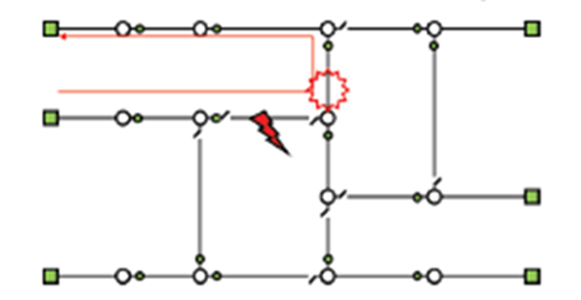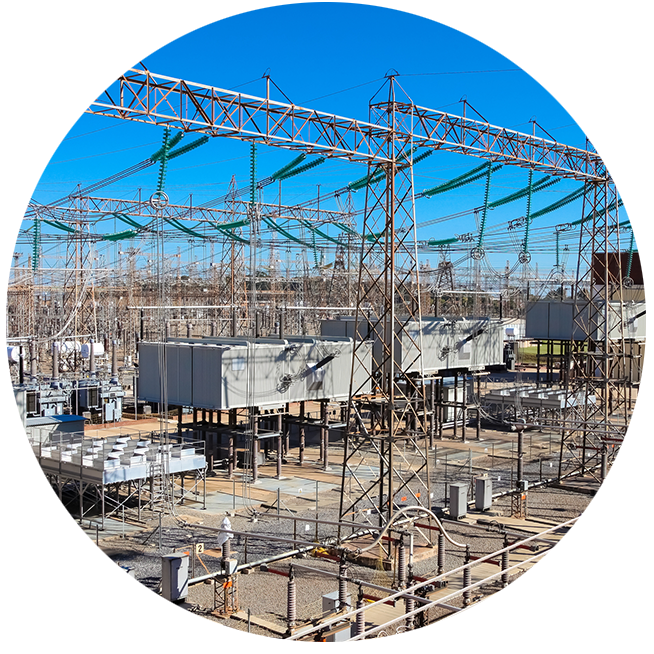The Problem
Electrical Distribution Grid power outages impair critical institutions, industry, and infrastructure. Despite the implications, there remain persistent gaps in solutions dedicated to Fault Location, Isolation, and Service Restoration (FLISR):
Fault Location
Locates the fault in the power grid
Current solutions make use of unreliable and/or expensive methods for locating the fault in Meshed Grids

Service Restoration
Finds alternate paths to restore power
Current solutions use either weak or complex algorithms, inhibiting operator from following the process and decision-making
Additional Gaps:
- Too costly for most utility companies
- Complex system integration

Implication of Status Quo


Manual & Time-Intensive Processes
Manual FLISR procedures can take hours for large or complex meshed grids


Cost Implications
Local distribution utilities face large penalties via the System Average Interruption Duration Index (SAIDI)


Threat to Civilian Health & Safety
Impairment of institutions and resource (e.g. water, transportation) poses threat to communities


Economic Disruption
Power outages force retail, financial, and other critical businesses to close, resulting in financial loss
The Solution



OutRight Power empowers operators to quickly and systematically reconfigure grids and restore power:
- Patented algorithm models Meshed Grids as Open Ring topologies thus simplifying dramatically the procedures for grid reconfiguration
- Centralized visualization of grid status, fault location, and alternate restoration paths for rapid decision-making
- A cost-effective and intuitive solution that involves and empowers grid operators in utility companies of all sizes
- Solves extended fault contingency
- Solves communication or device problems
- Involves operators right from launch. OutRight Power mimics an experienced Power Grid Operator, being simple and intuitive for them
- FCIs are the weakest link in the Fault Location process, so their data is checked versus feeder protection relays for a truly reliable result
- Very cost effective making it attractive for electric utility companies of all sizes
- Easy integration with other technologies/systems/Distributed Energy Resources/Microgrids
- Graphically illustrates the paths through which the restoration process will take place

